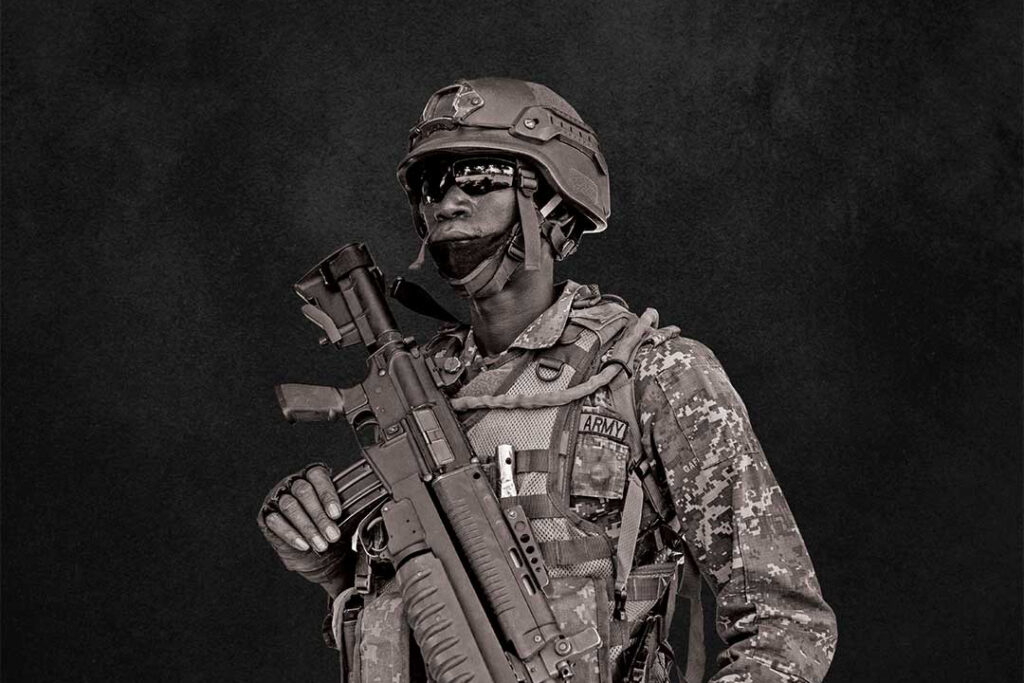ADF STAFF
Coups and coup attempts have made a resurgence on the continent in the past few years. In the face of extremist violence, outside interference and political instability, militaries can prevent coups by reinforcing their professional principles.
These principles are the bedrock that have helped security forces preserve peace and support democratic governance for so long in so many countries.
Although there is no guarantee that any country can avoid an unconstitutional change in government, there are certain security sector reform measures that organizations can take to lessen the likelihood of a coup.
Listed below are expert recommendations on reform initiatives that can be implemented to instill stability and professionalism in the ranks, and reduce the likelihood of a military coup. The list is by no means exhaustive, but if collectively implemented, the recommendations can help countries preserve strong, civilian governance and help them avoid falling into the “coup trap.”
APPOINT GENERALS BASED ON MERIT: When leaders stack the top ranks of their militaries with political appointees who act as functionaries, it can lead to resentment within the ranks. Generals and flag officers who ascend based on experience, merit and longevity are more likely to have the respect of the rank and file. They also are attentive to institutional grievances before they rise to the level of a coup.
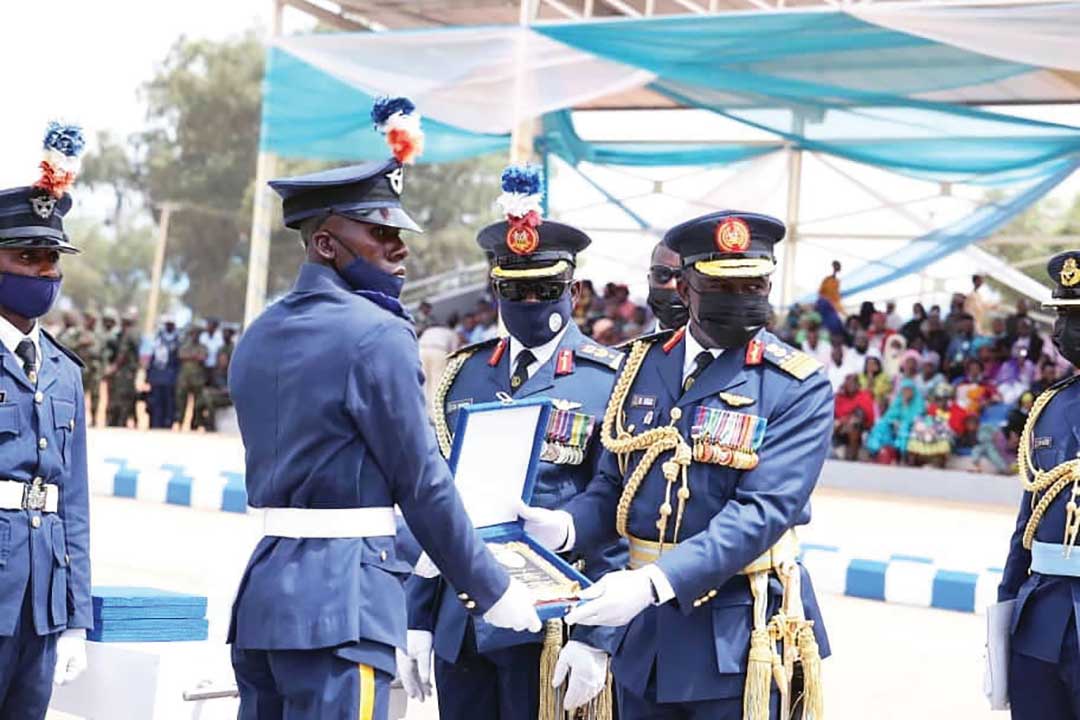
Moreover, when branch commanders are chosen based on political, ethnic or financial concerns, it subverts the military institution’s promotion process and culture. It also sends a message to the military that flag officers are serving political, rather than national security needs. Choosing leaders this way can lead to the impression of incompetence at the senior command levels and dissatisfaction among junior officers. Some of the continent’s most recent coups were undertaken by junior officers who cited dissatisfaction with their nation’s senior military leaders.
A politicized military sends a message to the public that a peaceful transfer of power through elections is not possible. “If the military took partisan positions or exercised partisan loyalties, voters might reasonably assume that the opposition party would not be able to control the military if voted into office,” wrote Alice Hunt Friend of the Center for Strategic & International Studies.
Friend emphasized that the public must know that decisions about the funding, size and use of the military are driven by national interest, not party politics. “The military serves the Constitution through obedience to democratically elected civilian officials without regard for political party or partisan positions,” Friend wrote. “This idea underwrites the peaceful transfer of power between presidential administrations.”
END ETHNIC STACKING: A more specific subgrouping of unhealthy political military appointments involves the practice known as “ethnic stacking.” With this tactic, a country’s leader deliberately fills the top military ranks with officers of his or her own ethnicity. The thinking is that surrounding yourself with people like yourself will insulate you from public accountability and criticism. The truth, however, is that the practice almost inevitably leads to corruption and poor governance, which ultimately makes the political leader vulnerable.
Scholars have devoted considerable attention to ethnic stacking, linking it to authoritarian repression, coups and political violence. A good example of the practice took place in the former African country of Zaire, now the Democratic Republic of the Congo. Mobutu Sese Seko stacked his officer corps with Ngbandi men from his native Equateur region after he took office as president in 1965. By the time Mobutu’s rule ended 30 years later, Equateur kinsmen made up almost 80% of his officer corps. Mobutu’s tenure might have been extended by the practice, but his legacy was one of corruption, economic exploitation and uncontrolled inflation.
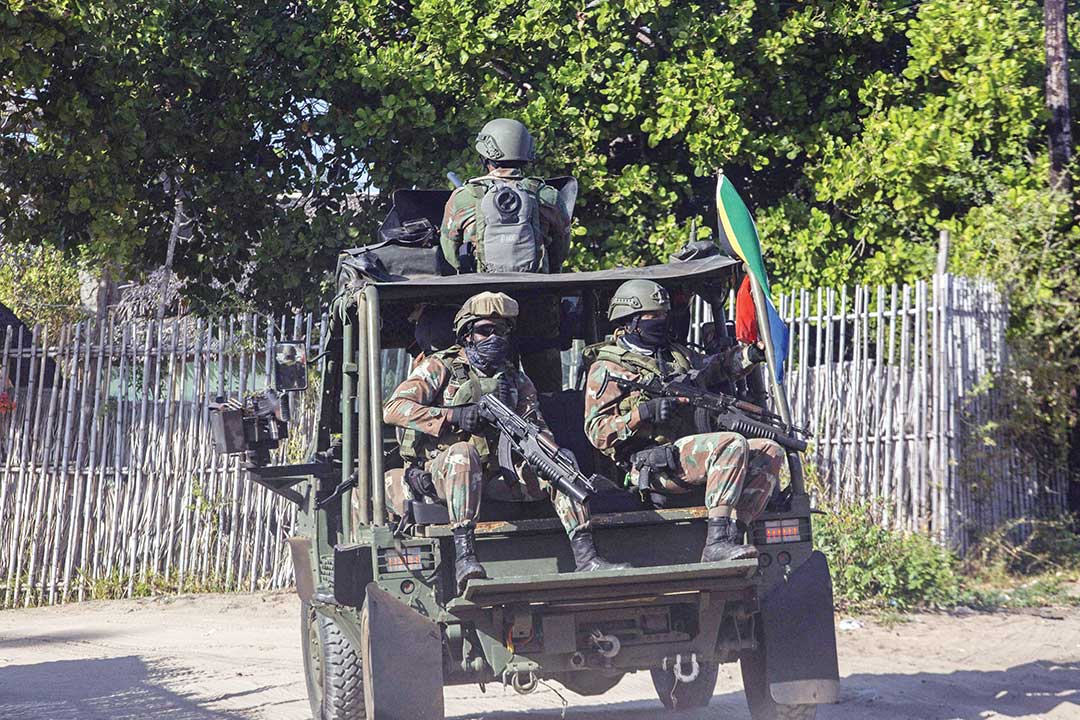
Researcher Dr. Kristen Harkness of the University of St. Andrews in Scotland found that when elections usher in a new leader who is ethnically different from the existing ethnically constructed army, the risk of a military coup rises from under 20% to almost 90%.
Ethnic stacking only works if a leader’s goal is to stay in power. Good and stable governance is more likely with an ethnically diverse military that fairly represents the civilian population. Kenya and South Africa each have ethnic and racial quotas, respectively, that ensure diversity and proportional representation.
REMAIN APOLITICAL: Another tactic similar to ethnic stacking and meritless political appointments is the practice of new leaders firing senior military leaders upon taking office. Military professionals can’t prevent this from happening during a change of political administrations. But they can prevent its likelihood by taking care to show fairness, political impartiality and support to civilian authorities.
Nigerian commanders modeled this support before and after some Independent National Electoral Commission offices and facilities came under attack in late 2022, in the run up to national elections in February 2023. Some unrest and controversy preceded the vote, prompting commanders and President Muhammadu Buhari to speak out on the importance of security forces upholding civilian rule and authority.
Nigerian Maj. Gen. Aminu Chinade, general officer commanding 2 Division of the Nigerian Army, warned Soldiers in October 2022 against colluding with politicians and parties to influence the upcoming elections. Doing so, he said, would reflect poorly on the Nigerian Army, according to Peoples Gazette, an online news site based in Abuja.
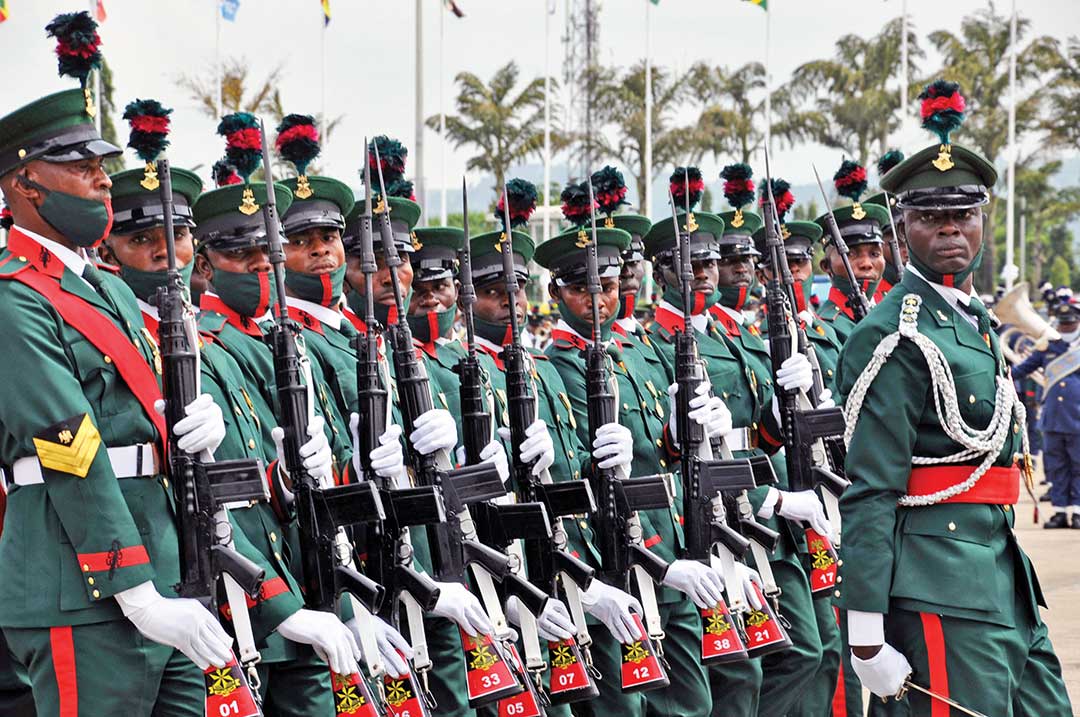
“I am encouraged by your behaviour and professional conduct,” Chinade told the Soldiers of Brigade 4 Benin City, according to Peoples Gazette. “I want to implore you to work closely with the host community and contribute to the security of lives and property in the area, especially in this election period.”
He continued: “Remain apolitical in order not to dent your career. Whenever you are called upon during the elections, you should remain neutral and apolitical.”
Buhari himself shared a similar message in late December 2022. “I have made it very clear to the security agencies that they have a responsibility to remain apolitical at all times. Under no circumstances should they get involved in anything that could compromise the democratic process, or bring disrepute to their institutions and to Nigeria,” he said, according to Voice of Nigeria.
PRIORITIZE PROFESSIONAL MILITARY EDUCATION: In general, an educated military is a more professional military. There are more than 118 professional military education (PME) institutions on the continent, giving African nations a good base from which to improve professional development. However, not all countries have PME institutions, and some only have entry-level military academies that confer basic training and education to Soldiers and officers. Many militaries around the world are investing in PME throughout an officer’s career in recognition of the expanded professional scope and complexity gained with advancement in rank. Providing basic, mid and senior PME opportunities, either through host-nation or partner-nation schoolhouses, is an opportunity to reinforce professional ethics and imbue respect for civil-military relations. According to a report by the Africa Center for Strategic Studies (ACSS), PME institutions can reinforce institutional commitments to democratic governance and strong civil-military relations. Moreover, good PMEs can strengthen citizen security, form strategic visions and instill a sense of service among officers.
However, the ACSS report emphasizes that the mere presence of PME institutions does not in itself guarantee a professional military. “Rather, greater attention is needed to strengthen the curricula and culture within PMEs on the values of democratic civil-military relations and an apolitical military,” the report said. “In so doing, the prestige of PME institutions can be enhanced and graduates will earn the enormous responsibility bestowed on them to bear arms to protect citizens.”
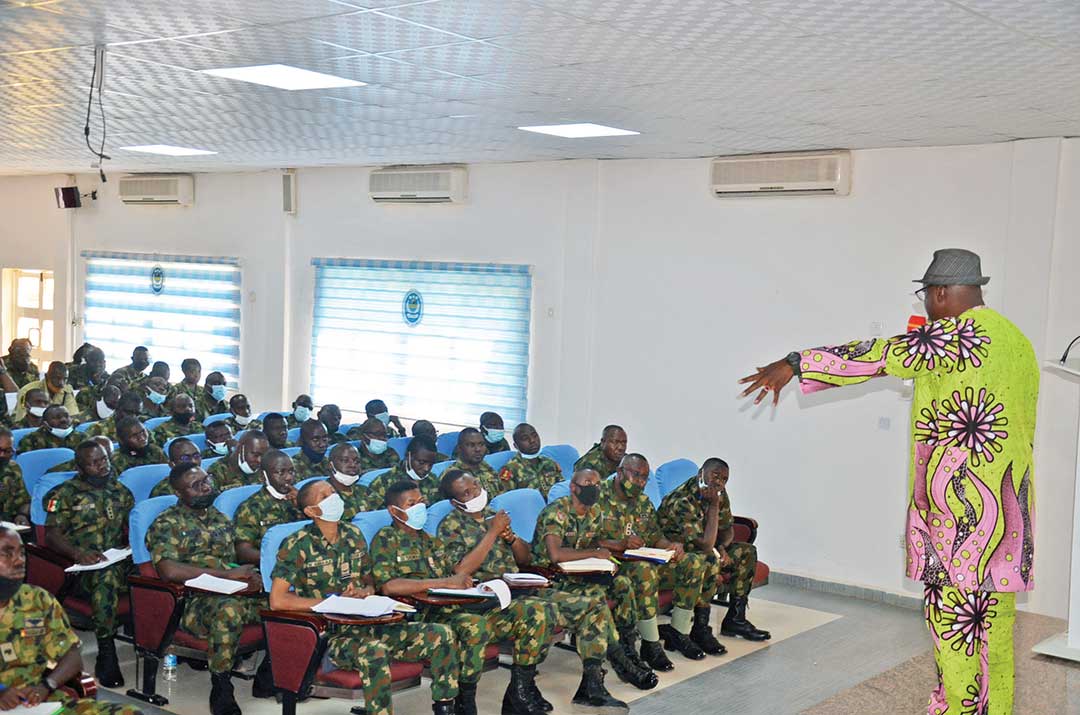
AVOID CREATING ROGUE UNITS: The establishment of special elite units such as presidential or republican guards that exist outside a nation’s normal military command structures often breeds resentment, confusion and creates division. These “sub-state” entities often answer only to a country’s president, thereby becoming detrimental to national unity and strengthening party or ethnic loyalties at the expense of society as a whole.
In exchange for exceptional fealty, members of special elite units receive better treatment, higher pay, enhanced training and more sophisticated equipment while the regular military rank-and-file looks on.
Ironically, a presidential or republican guard’s proximity to national leadership and its lack of national accountability make it a force uniquely positioned to conduct a coup if its members perceive their fortunes or power are about to change.
“The presence of presidential guards is a recurrent common denominator behind drivers of military coups,” according to a 2016 EU Institute for Security Studies report. “By virtue of the fact that they report directly to presidents, these ‘praetorian’ guards are detached from the usual military chain of command, thus creating disparities in terms of status and access to political patronage.”
One fairly recent example of this phenomenon was in Tunisia under the rule of President Zine El Abidine Ben Ali, who fled during the Arab Spring protests in 2011. Ben Ali favored his national police force, presidential guard and national guard over the larger Armed Forces.
Decades earlier, Félix Houphouët-Boigny, the first president of Cote d’Ivoire, began his 33-year rule by reducing the size of the military and forming a militia loyal to his party composed mostly of people from his own ethnic group. As a result, some officers received disproportionate pay, positions in the ruling party and other perks. This paved the way for future instability.

